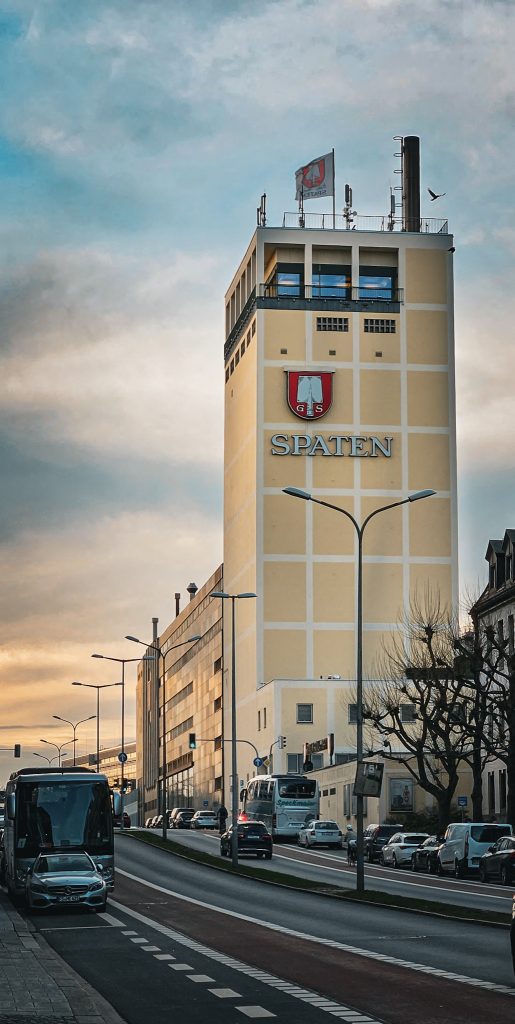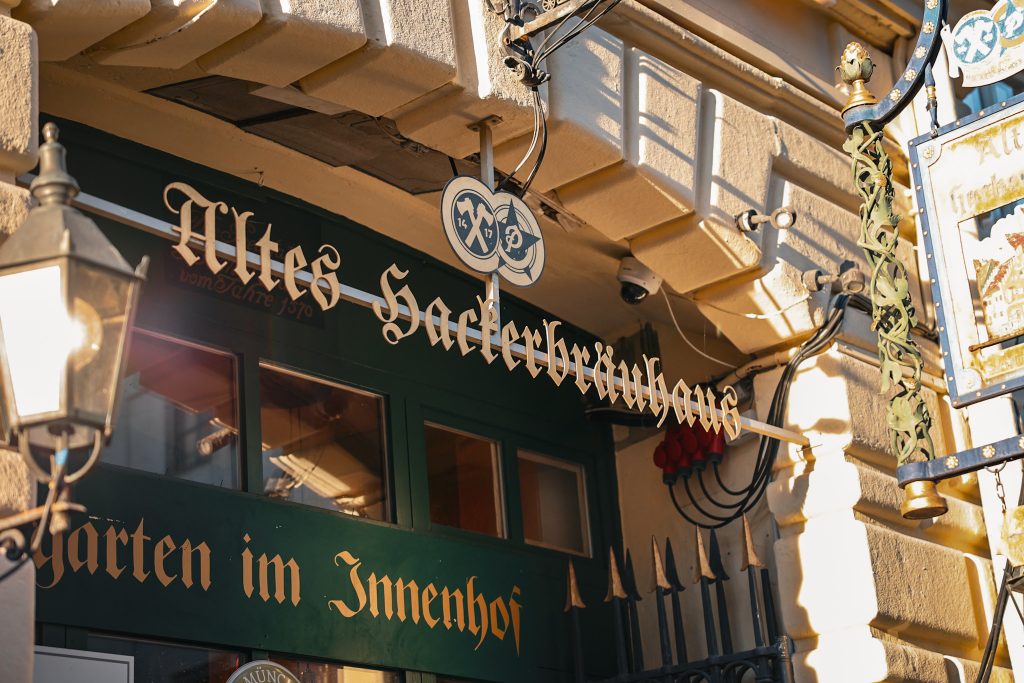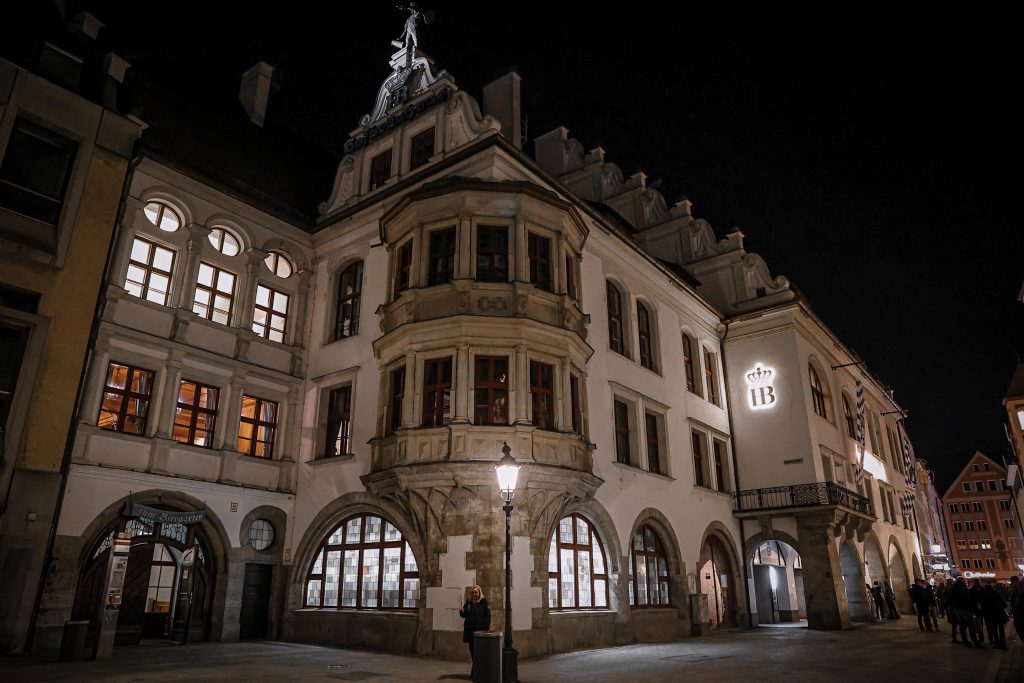Only six breweries are currently allowed to serve their beer at the Oktoberfest. Read on to find out who these breweries are and what it takes to join this prestigious group.
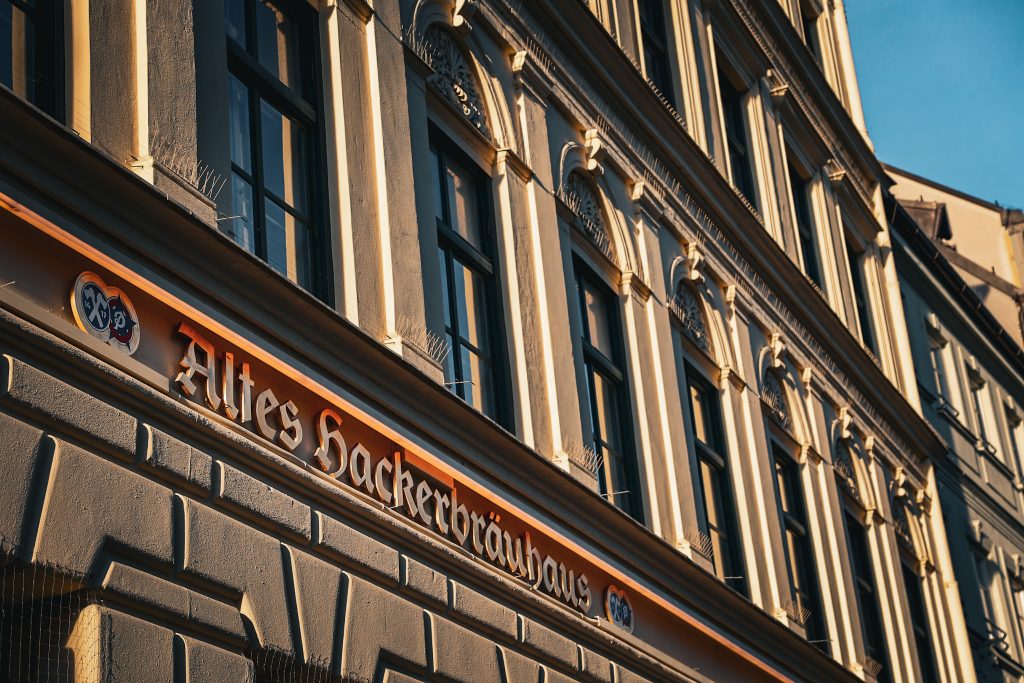
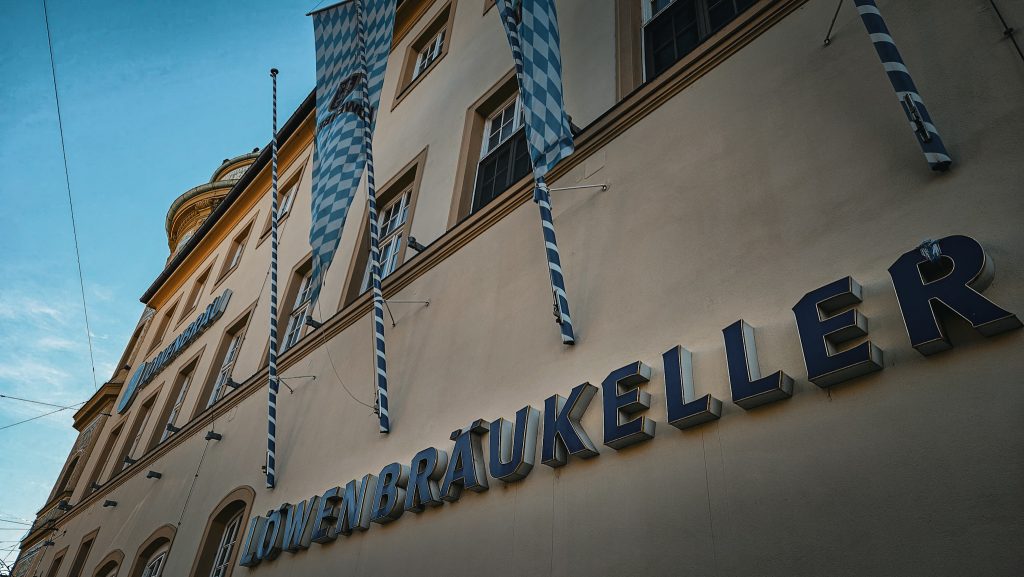
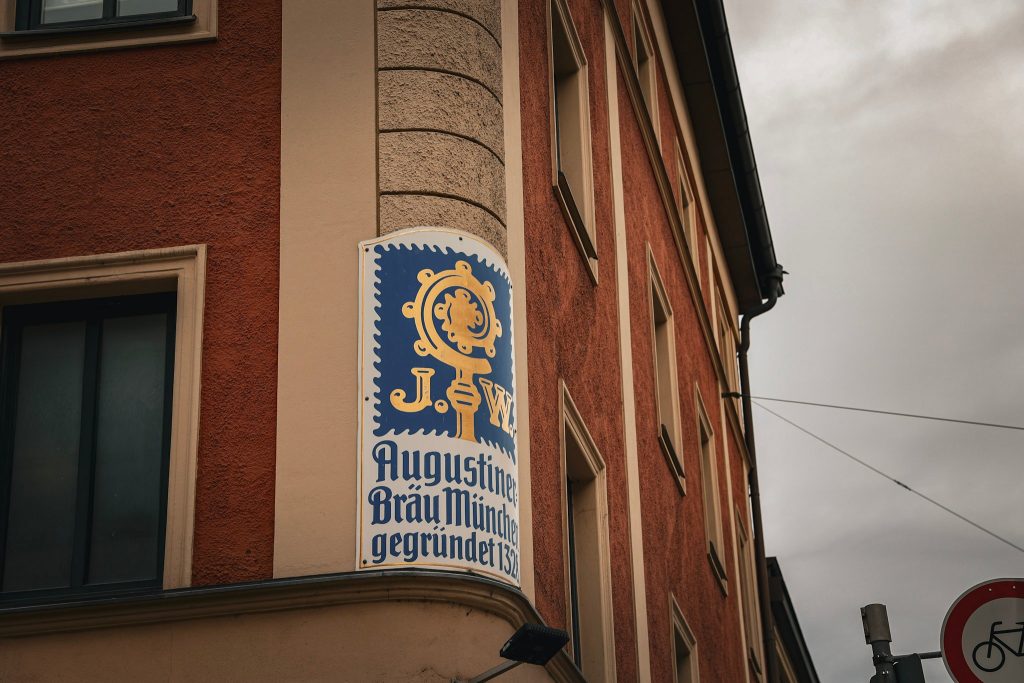
Only breweries located in Munich’s city centre are permitted to sell their beer at Oktoberfest. Moreover, only beer bearing the “Münchener Bier” quality seal, brewed following the purity law, is allowed to be sold there. The Bavarian Purity Law, introduced in 1516, is one of the oldest food regulations worldwide. It dictates that barley, hops, water, and yeast are the only permissible ingredients in beer brewing, a standard that has significantly influenced traditional Bavarian brewing for centuries. Additionally, the breweries must utilize water from Munich, which is sourced from deep wells up to 180 meters (590 feet) deep. Presently, there are only six historic breweries that have obtained the “Münchener Bier” seal of approval and are authorized to sell it at the Wiesn.
However, to sell beer at the Oktoberfest you must also be part of a pretigious club: That means you must be a member of the “Verein Münchener Brauerein”. The barriers to entry are extremely high and, above all, a certain financial size and centuries of tradition are virtually a prerequisite, making it impossible for young breweries to join this elite circle. However, in the last years there is one young brewery that is fighting hard to get into the circle and the chance are getting better and better.
Currently, there are six breweries that obtained the “Münchener Bier” and are part of the “Verein Münchener Brauerein” and are thus allowed to sell the beer at the Oktoberfest:
Augustiner Brauerei
Munich’s oldest brewery dates back to 1328, when Augustinian monks originally brewed the beer for the Wittelsbach dukes with their much-admired strong brew until 1589. The strong beer enjoyed ever-increasing popularity, so that later it was also sold to the general public. Today, the beer is brewed not far from the Theresienwiese in the Schwanthalerhöhe district. It is worth mentioning that the Augustiner Braurei is still privately owned. Likewise, Augustiner beer is still served at the Oktoberfest from the old 200-liter wooden barrels. With 6.3% alcohol, it was also one of the strongest Oktoberfest beers in 2023.
Hacker-Pschorr Brauerei
The first mention of the brewery dates back to 1417, although the modern history of the brewery begins much later, in 1793. In that year there was a wedding, which was also decisive for the name of the brand: The brewery servant Joseph Pschorr married Maria-Theresia Hacker, who also came from a brewery family. Nevertheless, their sons each went their own way and opened separate breweries: one named Hacker and the other named Pschorr. Meanwhile, the brewery had Germany’s biggest beer storage cellar, fondly referred to in Munich as the “beer fortress”. The two breweries merged in 1972, creating a public company. In Munich, the beer is recognised for the swing top on the bottle. The Bräurosl and the Hacker festival tent serve the Oktoberfest beer with a 6% alcohol content.
Löwenbräu Brauerei
The brewery’s name translates as “Lion’s Brew” and symbolises strength and quality, which is reflected in its rich history dating back to 1524. However, the name “Löwenbräu” does not appear in the beer register of the city of Munich until 222 years later, in 1746. The brewery’s economic rise began with Georg Brey, who bought it in 1818 and made it Munich’s largest brewery in those years. Around 1850, Brey also received permission to brew the first “Bockbier”, making him a pioneer in the strong beer market. As early as 1872, Löwenbräu was sold out of the Brey family’s ownership and converted into a joint stock company – the start of a fundamental modernisation of the brewery. Löwenbräu continues to expand its international presence and is now represented in over 50 countries. Today, the beer is not only brewed in Munich, but reaches the whole world in two ways. Either the beer brewed in Munich is exported directly, or the beer is brewed by licensees in the respective countries – strictly in accordance with the German Purity Law. Since 2004, like Spaten, it has been part of the Brazilian-Belgian InBev Group, the world’s largest brewing corporation. ne of the youngest of the six Munich breweries, but has a rich brewing tradition dating back to 1634. Initially served to the public only on the feast days of the order’s founders (monks), Paulaner was a bock beer that quickly gained local fame. In 1751, the monks finally received official permission from the highest authority to serve the beer on a permanent basis. The brewery’s flagship product, Paulaner Hefe-Weißbier, is a celebrated wheat beer known for its distinctive yeast cloudiness and refreshing taste. The brewery is also known for its modern beer gardens and the annual strong beer festival on the Nockherberg. Today, Paulaner beer belongs to the Paulaner Brauerei Gruppe, a joint venture between Schörghuber and Heineken. The Paulaner Brauerei Gruppe also owns Hacker-Pschorr Bräu beer, which is also served at the Oktoberfest. Paulaner beer is served in three large tents at the Munich Oktoberfest: the Armbrustschützenzelt, the Käfer Wiesnschänke and the Paulaner Festzelt.
Spaten Brauerei
The Spaten brewery was founded in 1397 and has been located on Marsstrasse near Theresienwiese since the 19th century. You can participate in interesting beer production tours here. It is said that Spaten was the first brewery to sell “Munich Light Beer”. However, this is difficult to prove. However, the brewery is the only German brewery ever to attain a gold medal for its beer at the World Exhibition in Paris. Perhaps the reason why Spaten beer is frequently served at the Wiesn is that it is available in three of the big tents – The Ochsenbraterei, the Marstall, and the Schottenhamel. Spaten has been part of the international conglomerate InBev since 2003. The Wiesn beer has an alcohol content of 5.9% (2023).
Löwenbräu Brauerei
The brewery’s name translates as “Lion’s Brew” and symbolises strength and quality, which is reflected in its rich history dating back to 1524. However, the name “Löwenbräu” does not appear in the beer register of the city of Munich until 222 years later, in 1746. The brewery’s economic rise began with Georg Brey, who bought it in 1818 and made it Munich’s largest brewery in those years. Around 1850, Brey also received permission to brew the first “Bockbier”, making him a pioneer in the strong beer market. As early as 1872, Löwenbräu was sold out of the Brey family’s ownership and converted into a joint stock company – the start of a fundamental modernisation of the brewery. Löwenbräu continues to expand its international presence and is now represented in over 50 countries. Today, the beer is not only brewed in Munich, but reaches the whole world in two ways. Either the beer brewed in Munich is exported directly, or the beer is brewed by licensees in the respective countries – strictly in accordance with the German Purity Law. Since 2004, like Spaten, it has been part of the Brazilian-Belgian InBev Group, the world’s largest brewing corporation.
Paulaner Brauerei
The Paulaner brewery in Munich, is one of the youngest of the six Munich breweries, but has a rich brewing tradition dating back to 1634. Initially served to the public only on the feast days of the order’s founders (monks), Paulaner was a bock beer that quickly gained local fame. In 1751, the monks finally received official permission from the highest authority to serve the beer on a permanent basis. The brewery’s flagship product, Paulaner Hefe-Weißbier, is a celebrated wheat beer known for its distinctive yeast cloudiness and refreshing taste. The brewery is also known for its modern beer gardens and the annual strong beer festival on the Nockherberg. Today, Paulaner beer belongs to the Paulaner Brauerei Gruppe, a joint venture between Schörghuber and Heineken. The Paulaner Brauerei Gruppe also owns Hacker-Pschorr Bräu beer, which is also served at the Oktoberfest. Paulaner beer is served in three large tents at the Munich Oktoberfest: the Armbrustschützenzelt, the Käfer Wiesnschänke and the Paulaner Festzelt.
Staatliches Hofbräuhaus
The Staatliche Hofbräuhaus in Munich, or Hofbräu for short, is a renowned and historic brewery with roots dating back to the 16th century. Founded in 1589 by the Duke of Bavaria, Wilhelm V, in Munich, Hofbräu has established itself as one of the most iconic and traditional breweries in the world. Today, Hofbräu is a state-owned company of the Free State of Bavaria and is supervised by the Bavarian State Ministry of Finance and the Interior.
In addition to its range of beers, Hofbräu has gained worldwide recognition for its beer gardens and halls. The Hofbräuhaus in Munich, the brewery’s flagship beer hall, is an iconic cultural institution that attracts visitors from all over the world. With its vibrant atmosphere, traditional Bavarian cuisine and, of course, freshly brewed Hofbräu beers, the Hofbräuhaus is a must for beer lovers and tourists alike.
Hofbräu’s influence extends far beyond Munich, as the brewery has successfully expanded its brand internationally. Hofbräu locations can be found in cities around the world, bringing the authentic Bavarian beer experience to a global audience.
